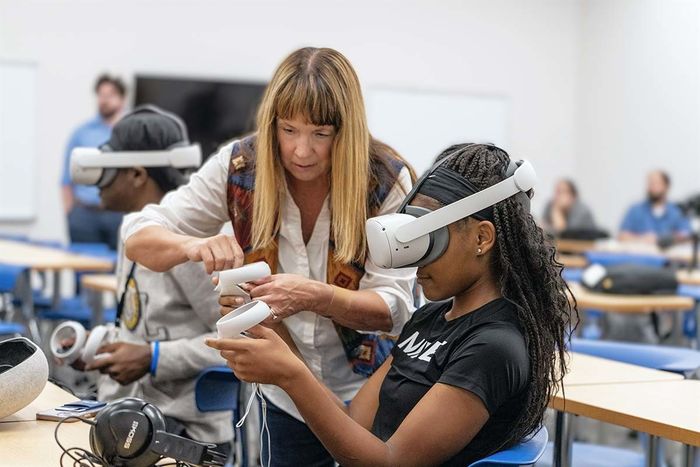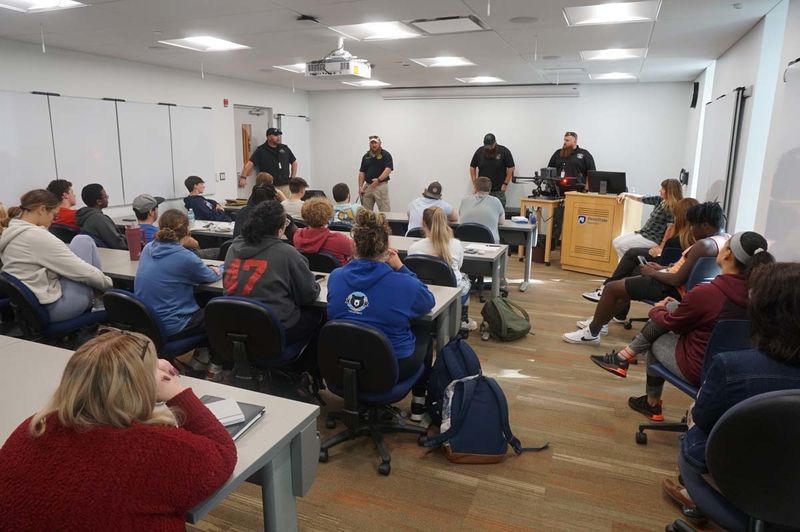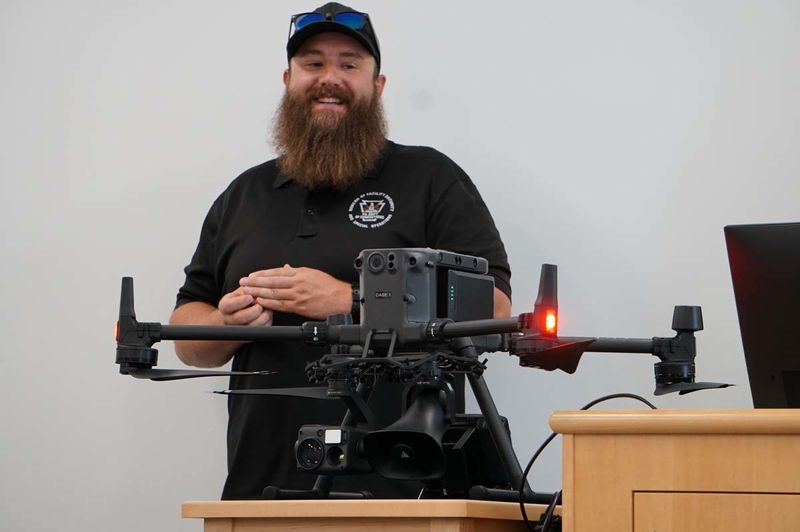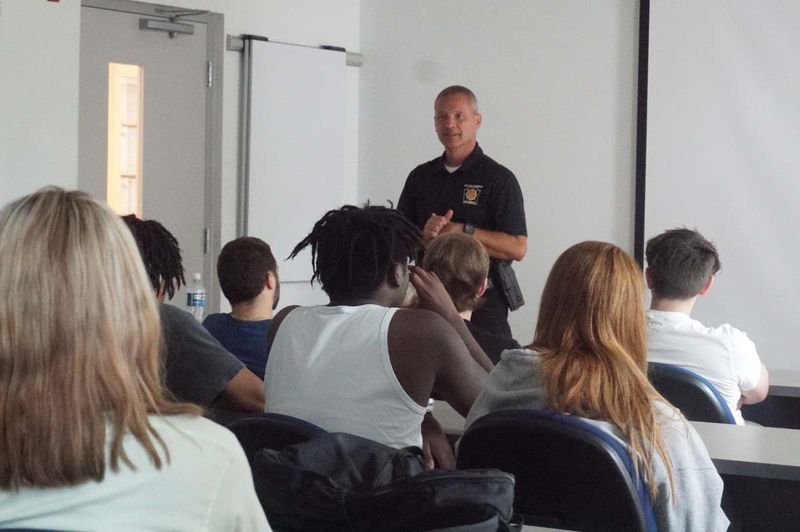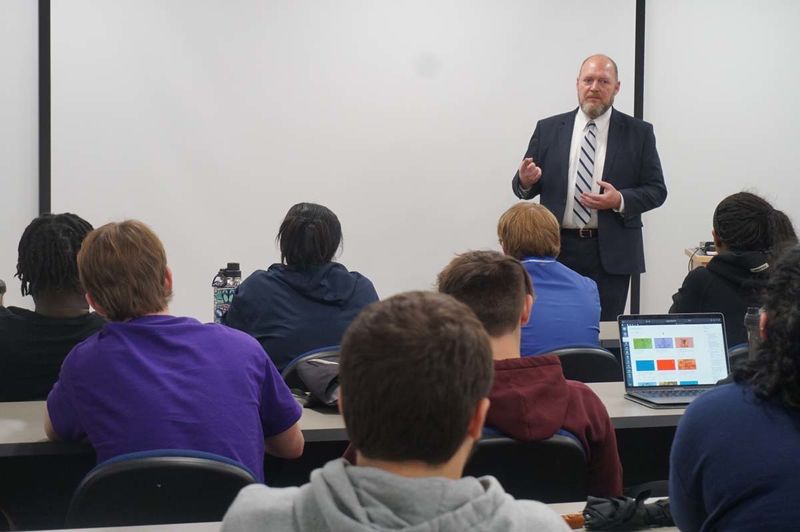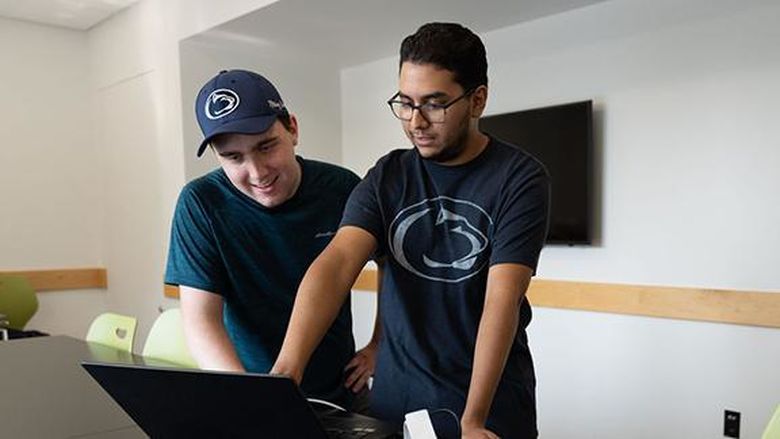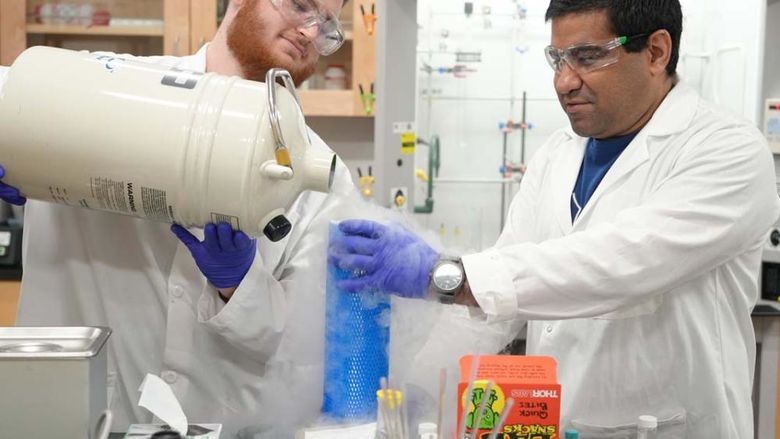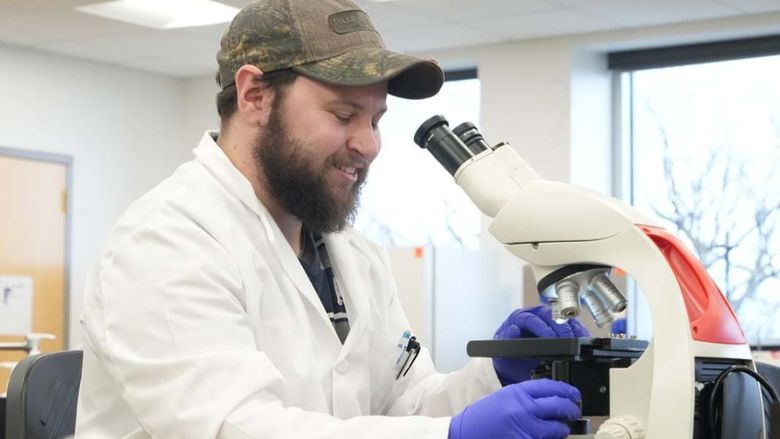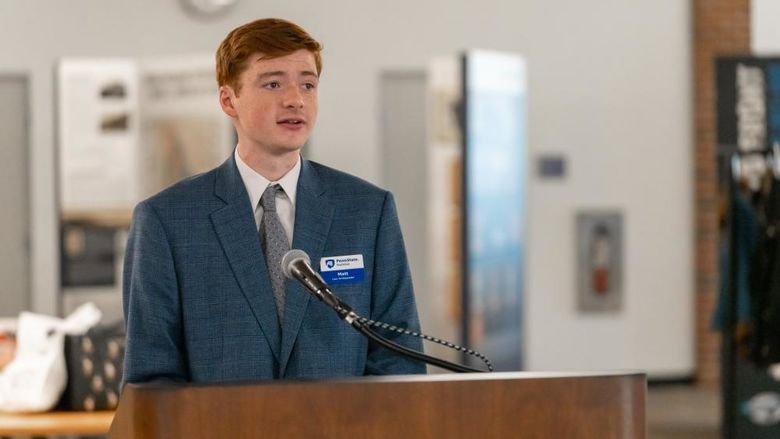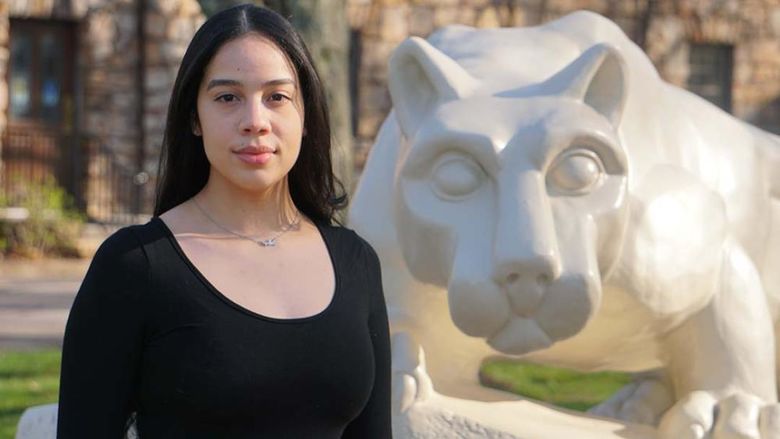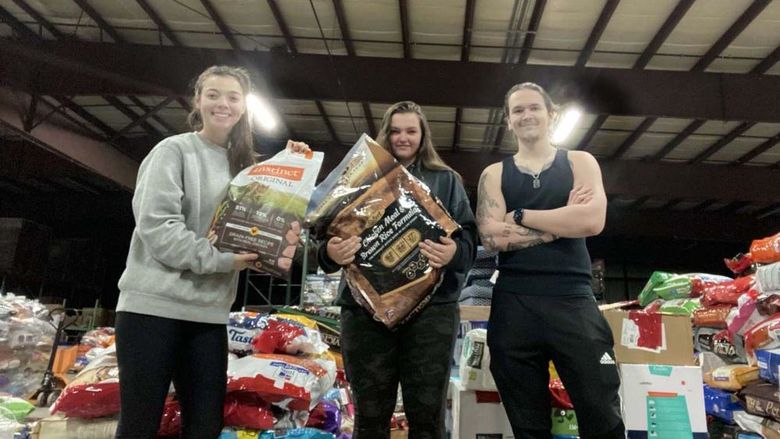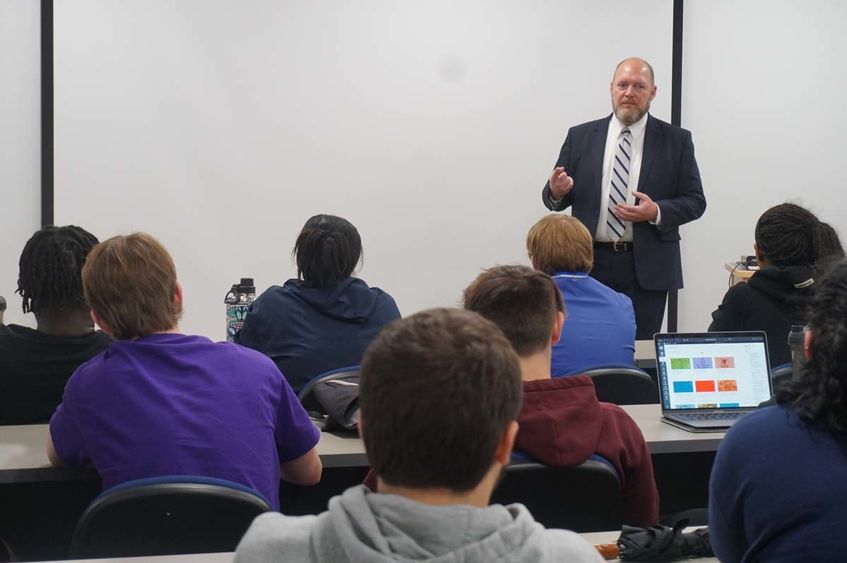
Columbia County Assistant District Attorney Daniel Lynn speaks to students about the judiciary system during the Criminal Justice Speaker Series.
HAZLETON, Pa. — If you watch crime shows on TV, you might think that prison officials always deal with a hostage situation by sending in a heavily armed SWAT team to take control and free the hostages. But in reality, it’s all about using communication and active listening skills to figure out what’s going on, lower tension levels and keep everyone safe.
That’s what four members of Pennsylvania’s hostage negotiation team (HNT) recently told students in a criminal justice class at Penn State Hazleton. The team was invited to the class to talk about crisis response and resolution through negotiations, as part of a speaker series developed by Pam Black, professor of criminal justice and coordinator of the criminal justice degree program at the campus.
Each HNT member is a representative of Pennsylvania’s Department of Corrections and an employee of a state prison, known as State Correctional Institutions (SCIs). Because the team members often work in sensitive, challenging situations, and in order to maintain the safety, security and integrity of the program, they will not be identified by name in this story.
“There are a lot of things going on in hostage negotiations, but it all comes down to conversation,” said a retired police officer who trains corrections and law enforcement personnel across the state. “The longer somebody is talking to me, the harder it is for them to stay up in emotion [that might lead to violence].”
While prison guards and officials are responsible for the “care, custody and control” of inmates, he said, they can’t forget that they’re dealing with human beings — many of whom may be incarcerated not because they’re hardened career criminals but because they made a bad decision in a stressful situation. “We’re vastly outnumbered in the institution, and we have to give the inmates respect.”
Black said the speakers series helps the realities of work in the criminal justice system come alive for students.
“They might want to be a state trooper, or they might want to be an attorney, or they might want to be a forensic scientist, but they have no idea how to get there,” Black said. “But they hear it now [in class], they hear it in their first semester. And I think it helps them decide how to plan their educational career.”
Black’s students appreciate the real-world perspective the outside speakers bring to the classroom. Nic Molchan, a third-year Hazleton student from Fayetteville, who’s thinking about a job in law enforcement, said "I think there’s a lot of TV shows that often misrepresent what the different jobs do. Having actual employees in the field come in and talk to us, and give us clarification on what they do, is very helpful.”
Molchan’s main takeaway from the presentation was that “communication plays a big role. With the hostage response scene, it shows that … you can use negotiations and communication for your benefit but also for whoever you interact with.”
Paris Presnell, a second-year student from Ohio, wants to work in corrections but isn’t exactly sure in what capacity. “I feel like I’m better connected when people actually come in here and speak. It just gives me a new perspective on what I can do in my career and where I can take it.”
Joey Glazenski, a third-year student from Mountain Top, wants to be a prosecutor after graduation. The negotiation tactics outlined by the speakers will be very useful in his career, he said.
“Because they’re in this field now, we get a fresh perspective on the criminal justice system,” he said. “Talking to people in the field now allows us to connect class concepts to current applications.”
The other three presenters all emphasized the importance of having a conversation with someone in crisis, really listening to their concerns, and trying to influence a peaceful resolution.
A team leader noted that drug/alcohol use and mental health issues are two factors hindering negotiators from getting through. “You have to have passion to help somebody out,” he said. “We use active listening skills and a lot of empathy.”
An assistant team leader said that he and his colleagues do their hostage negotiation work on a volunteer basis, outside their regular jobs. ”We deal with people in crisis all the time,” he said. “Teamwork, pride in yourself, pride in what you do, is very important in this field.”
An alternate assistant team leader said she works with inmates who are confined to the prison, as well as others who take occupational training classes and “work outside the fence” at jobs like cutting the grass. Some of them have never really been talked to, she said, so they really appreciate the outreach. “We don’t have weapons,” she said. “We talk, we communicate.”
Black started the criminal justice program at Penn State Hazleton in 2014, having come there from Penn State Schuylkill specifically to do so.
“What attracted me to Hazleton was that Hazleton has a much more diverse population and a more diverse student body. And I liked that,” she said. “You get a lot of different perspectives on what criminal justice is, and what it isn’t, and what it should be.”
Many students in the class may go on to become police officers, Black said. But the program’s purpose isn’t to teach students the mechanics of police work, such as handling firearms or dealing with perpetrators. It’s to help them understand the criminal justice system, with the goal of helping them become better police officers, or corrections officers, or attorneys.
“What we’re focusing on is to present different perspectives on why people engage in crime, why some people get arrested more than others, and why so many people who get released from prison end up back there,” she said. “The program exposes potential officers to different world views, and that’s the whole point.”
Black said she believes that the speakers series has contributed in part to the strength of the criminal justice program at Penn State Hazleton. With 23 students currently enrolled, and with most not entering the major till their second or third years, it’s “quite healthy” and “up considerably from last year,” Black said.
In addition to members of the hostage negotiation team, Black's speaker series has featured an assistant district attorney, state game warden, victim witness program director, state trooper, federal prison associate warden, members of the state department of corrections and local law enforcement.
Penn State Hazleton offers bachelor of arts and bachelor of science degrees in criminal justice.
